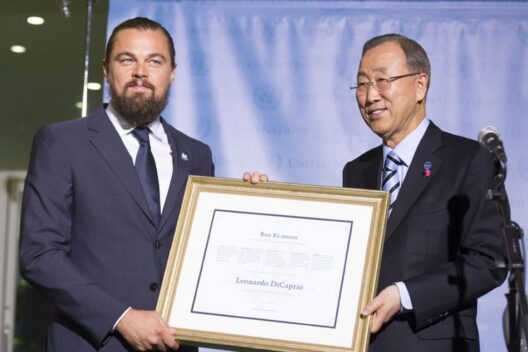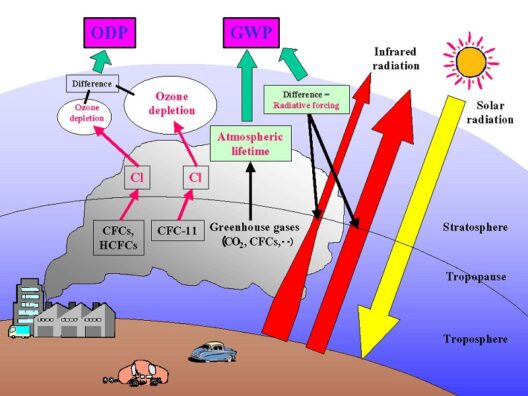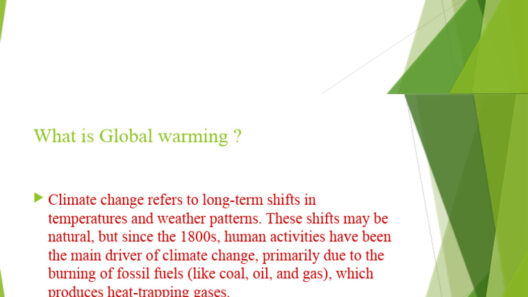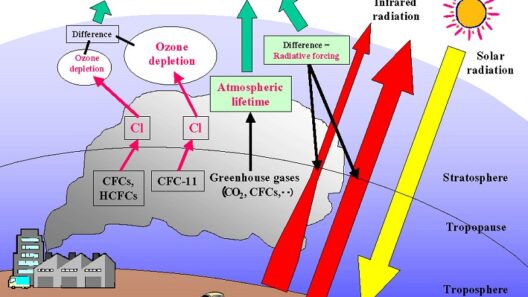In recent years, the narrative surrounding climate change has elicited fervent debate, compelling individuals to confront one of the most pressing issues of our time: global warming. As discussions pepper social media and mainstream news, a pervasive myth emerges—some individuals maintain that global warming is a hoax. This perspective warrants a thorough examination, as it not only undermines scientific understanding but also jeopardizes the collective efforts necessary to address this existential threat. This article aims to debunk the pervasive myths and misconceptions surrounding climate change, fostering a deeper understanding of an urgent global dilemma.
Understanding the Science of Global Warming
The foundational premise of global warming is grounded in well-established scientific principles. The Earth’s atmosphere is predominantly composed of gases such as carbon dioxide, methane, and nitrous oxide, which are classified as greenhouse gases. These gases trap heat from the sun, creating a ‘greenhouse effect’ that maintains the planet’s temperature at a level conducive to life. However, the burning of fossil fuels, deforestation, and industrial processes have intensified the concentration of these gases to alarming levels. This exacerbation is scientifically corroborated and meticulously documented in comprehensive assessments conducted by experts from around the globe.
Numerous studies indicate that the Earth’s average surface temperature has risen approximately 1.2 degrees Celsius (2.2 degrees Fahrenheit) since the late 19th century. There exists a robust body of evidence demonstrating that this increase correlates directly with human activity. Scientific organizations, including the Intergovernmental Panel on Climate Change (IPCC), assert with high confidence that without significant action, temperatures are projected to continue rising, leading to catastrophic environmental consequences.
Myth-Busting: The Claim That Climate Change is a Hoax
At the crux of the “global warming is a hoax” argument lies a misunderstanding, or willful denial, of the scientific evidence presented. Detractors often posit that climate science is unsettled, yet, such claims are not substantiated by empirical data. The overwhelming consensus among climate scientists—over 97%—is that climate change is real and primarily driven by human activities. This consensus is derived from rigorous peer-reviewed research, spanning decades, and cross-examined across various disciplines, including meteorology, oceanography, and environmental science.
One common assertion from climate change skeptics is that Earth’s temperature has fluctuated naturally throughout history. While it is true that climate variation occurs due to natural phenomena, such as volcanic eruptions or solar output, the rate and magnitude of current changes are unprecedented when compared to historical precedents. Moreover, natural fluctuations cannot account for the accelerated increase in greenhouse gas emissions linked to human activity. Failure to distinguish between natural climate variability and anthropogenic influences perpetuates confusion.
Another misconception revolves around the role of economic interests in climate science. Some critics theorize that climate research is manipulated for financial gain through grants and proposed solutions. However, this argument fails to acknowledge the diversity of stakeholders involved in climate research, including independent institutions and researchers. Additionally, a multitude of studies reiterate the economic imperatives for addressing climate change, emphasizing that the cost of inaction far outweighs the investment in sustainable practices and technologies.
Climate Change: Reality Beyond the Denial
As the evidence mounts against climate change denial, it becomes imperative to confront the severe repercussions that accompany inaction. Global warming manifests in myriad forms, ranging from increased frequency and intensity of extreme weather events to the gradual melting of ice caps and rising sea levels. Coastal communities and vulnerable populations are disproportionately affected, raising ethical concerns about climate justice. The consequences are undeniably global, transcending geographical boundaries and impacting future generations.
Furthermore, the ecological ramifications of global warming are extensive. Biodiversity is at risk, with countless species facing extinction due to shifting habitats and altered food chains. This loss diminishes the resilience of ecosystems, aggravating soil degradation and diminishing agricultural productivity. Without concerted efforts to combat climate change, the very fabric of life on Earth is threatened, an outcome that demands attention and immediate action. The recognition of quality of life, public health, and environmental sustenance hinges on addressing these intertwined challenges.
Shifting Perspectives: From Skepticism to Action
The time has come for a transformative shift in perspective. It is essential to move beyond skepticism and towards proactive engagement. Education plays a pivotal role in elucidating the complexities of climate science, fostering informed discussions that empower individuals to take action. This engagement extends to collaborative efforts among governments, corporations, and communities to develop sustainable policies. Renewable energy sources, such as solar and wind power, present untapped opportunities for reducing reliance on fossil fuels while catalyzing economic growth.
Moreover, grassroots movements play an instrumental role in raising awareness and advocating for change. Individuals can actively participate in local initiatives focusing on conservation, energy efficiency, and sustainable transportation options. Collective action at the community level enhances resilience and promotes an ethos of responsibility towards the planet.
In conclusion, the assertion that global warming is a hoax is rooted in misinformation and a misunderstanding of scientific principles. Climate change, a complex phenomenon, calls for immediate and concerted efforts to mitigate its impacts. By dispelling myths and embracing the realities of climate science, society can foster a future that prioritizes ecological balance and collective well-being. The urgency of the matter compels us not only to acknowledge the truth of climate change but also to engage actively in forging pathways towards a sustainable tomorrow.







